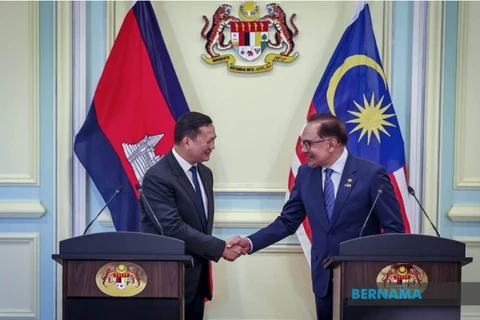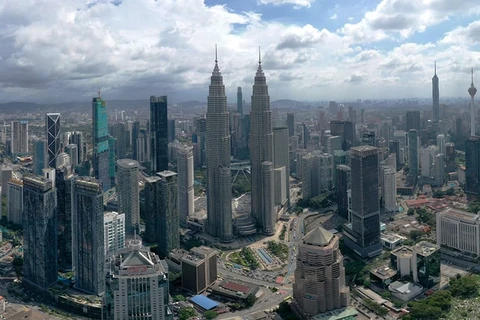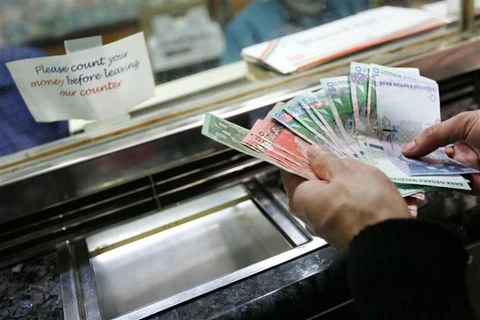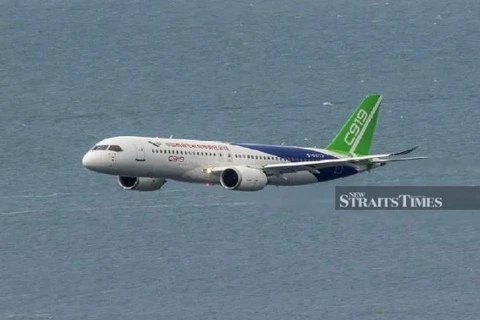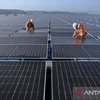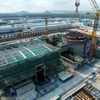Kuala Lumpur (VNA) - The Ministry of Investment, Trade and Industry (MITI) of Malaysia has announced that the country will speed up the implementation of approved investments to generate positive economic spillovers to domestic small and medium enterprises (SMEs) and the creation of 127,000 job opportunities for the people.
MITI and the Malaysian Investment Development Authority (MIDA) are working hard to fully realise the approved investments for 2023, which was 329.5 billion RM (69 billion USD), a 23% increase compared to 2022, local media reported.
Of the total, foreign investment (FDI) was the main contributor, at 57.2% compared to domestic investment (DDI) at 42.8%.
MITI affirmed that the 35.1% increase in DDI also reflected the encouraging confidence of local investors in the MADANI Government’s economic policies.
MITI, through its agencies such as the Malaysia Productivity Corporation (MPC), is also striving to train as many local workers as possible through programmes such as the Academy in Industry (AiI) to meet the demand for quality and trained talent from high-tech and high-impact industries.
By now, the MPC has successfully placed and improved the skills of 2,665 youths who did not have the opportunity to go to higher education institutions, it said.
Through the trade and investment mission to China from March 29 until April 3, 2023, MITI said the investment potential from conferences, roundtable meetings, and the Malaysia-China Business Forum was estimated to be worth 170 billion RM.
MITI and the Malaysian Investment Development Authority (MIDA) are working hard to fully realise the approved investments for 2023, which was 329.5 billion RM (69 billion USD), a 23% increase compared to 2022, local media reported.
Of the total, foreign investment (FDI) was the main contributor, at 57.2% compared to domestic investment (DDI) at 42.8%.
MITI affirmed that the 35.1% increase in DDI also reflected the encouraging confidence of local investors in the MADANI Government’s economic policies.
MITI, through its agencies such as the Malaysia Productivity Corporation (MPC), is also striving to train as many local workers as possible through programmes such as the Academy in Industry (AiI) to meet the demand for quality and trained talent from high-tech and high-impact industries.
By now, the MPC has successfully placed and improved the skills of 2,665 youths who did not have the opportunity to go to higher education institutions, it said.
Through the trade and investment mission to China from March 29 until April 3, 2023, MITI said the investment potential from conferences, roundtable meetings, and the Malaysia-China Business Forum was estimated to be worth 170 billion RM.
Disciplined implementation is one of MITI’s main focuses this year. Thus, MITI and MIDA are always committed to providing advice, support and facilitation services to potential investors to ensure the implementation of approved projects can be realised as soon as possible, said the ministry.
MITI has established, among others, the Investment and Trade Implementation Action Committee (JTPPP) which is chaired by the MITI Minister to immediately solve implementation issues and obstacles related to investment and trade.
The establishment of the Invest Malaysia Facilitation Centre and the Project Implementation and Facilitation Office at MIDA has also helped speed up the process of approval and implementation of investment projects.
Various manufacturing projects that will generally take 18-24 months to complete were successfully implemented in less than 18 months. Among the projects that were successfully implemented quickly was Enovix Malaysia Sdn Bhd, which developed a silicon carbide battery manufacturing facility involving an investment of 5.8 billion RM over 15 years./.
MITI has established, among others, the Investment and Trade Implementation Action Committee (JTPPP) which is chaired by the MITI Minister to immediately solve implementation issues and obstacles related to investment and trade.
The establishment of the Invest Malaysia Facilitation Centre and the Project Implementation and Facilitation Office at MIDA has also helped speed up the process of approval and implementation of investment projects.
Various manufacturing projects that will generally take 18-24 months to complete were successfully implemented in less than 18 months. Among the projects that were successfully implemented quickly was Enovix Malaysia Sdn Bhd, which developed a silicon carbide battery manufacturing facility involving an investment of 5.8 billion RM over 15 years./.
VNA
